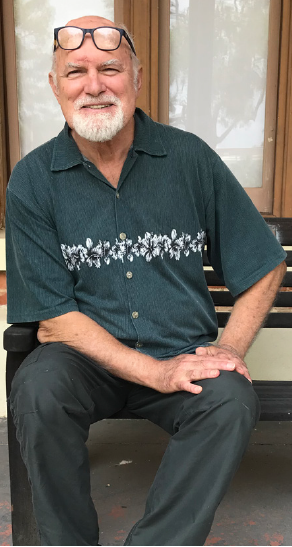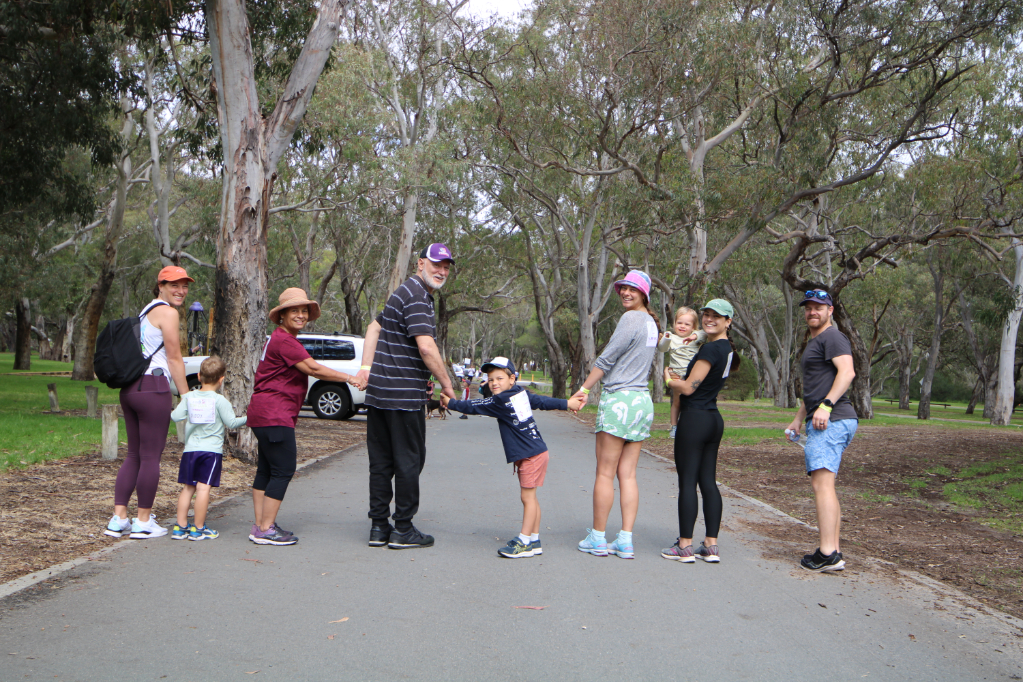In 2008, John was faced with an expected and unwanted change to his life when an observant physiotherapist sowed the seed of an idea that he may be developing symptoms that were consistent with Parkinson’s. John had gone to see a physiotherapist about his wrist, which he’d broken in a fall from a ladder.
“It was a bit of shock. I went to my doctor, who along with a neurologist, formally diagnosed it as Parkinson’s. I didn’t know much about what Parkinson’s was, only that it was an old person’s disease.”
John had been working as a Health Officer for a local council at the time and despite protests from his manager, made the hard decision to retire early at just 52 years of age.
“I’d started to find it difficult to type. And I was always a fast typist, but I’d reverted to finger typing which got worse and worse. My writing started to go too.”

Subsequent to John being given a firm diagnosis by a Perth neurologist, he was guided towards a support system which helped allay his fears.
That support system, the Parkinson’s WA Nurse Specialist Service, remains part of his life after so many years. These community-based nurses have been alongside him from diagnosis through brain surgery and managing his condition in a variety of ways.
John is very aware that Parkinson’s is a progressive neurological condition for which a cure remains elusive. He knows and experiences a range of symptoms which are unique to him. “Everyone assumes that Parkinson’s is all about tremor and walking difficulties. They are not aware that there are many problems known as non-motor symptoms which can rule my day-to-day life such as difficulties with sleeping, speech and bladder challenges. These are the things I talk to my nurse about when she visits me at home. My nurse manages to uplift me and gives me confidence for the future.’

Maria, John’s wife, has been a constant with her emotional support and hands on caring over the years since John was diagnosed. His family is tight‑knit and integral to the overall well-being of John.
These days, John focuses on things to keep him busy like tinkering in the garage or studying philosophy. His face lights up as he talks of his three beautiful girls, Anita, Marika and the youngest Karis along with his grandchildren too. “I’m in the final stages of Parkinsons, so it’s just a matter of choosing what I want to do and doing it.”
“So many things he’s had to give up.” Maria shares. “John has lost confidence over a number of things. His walking, his eyes, things have started going downhill. … it’s not easy.” John uses a wheelchair or walker now, and one of his biggest fears are falling. “I’ve been to the hospital three times in the last year because of falls.”
“I had to take a driving test and failed that too. It’s amazing how much of an impact that has. I can’t go up the road to the shopping centre without supervision. My medical team are pretty much saying I’m not to be trusted to do the things I love in my final years.”
And while Maria and John would love to wave a magic wand and turn back time, they are grateful for all the support they’ve received over 15 years since John has been diagnosed. They completely understand the benefits of harnessing the right support and activities to continue to live well.
“The support and care from family and friends, along with the Parkinson’s Nurse Specialists and connections made through Parkinson’s WA is really the key ingredient to this journey.”